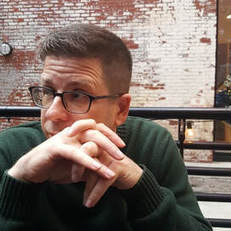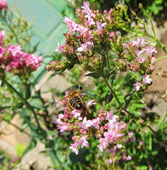From the Report's Executive Summary: At the dawn of a new presidential election year, many of the nation's youngest educated voters are approaching the race deeply skeptical of the news and information they get through internet giants like Google, YouTube, Instagram, and Facebook.
Get Started for FREE
Sign up with Facebook Sign up with X
I don't have a Facebook or a X account

 Your new post is loading... Your new post is loading...
 Your new post is loading... Your new post is loading...
Current selected tag: 'Project Information Literacy_US'. Clear
Mike Caulfield’s Twitter profile states he is “radically rethinking how information literacy is taught.” He has had a lot of experience doing just that since he first designed educational games, created educational wikis, and co-founded a 5,000-member online community, Blue Hampshire. He took his interests in civic media to positions as an instructional designer at Keene State College and as the director for the OpenCourseWare Consortium at MIT before becoming a national figure in promoting a practical and effective approach to digital literacy. [snip] So what’s different with our approach? Well, our four moves—which we now refer to by the acronym SIFT—move students from a recognition heuristic to networked reputation heuristics, and from thinking about to doing. The moves are:
Last week I was reflecting on whether our information literacy efforts truly support lifelong learning and whether there are practical ways to help students connect the kind of information analysis they conduct for college assignments with the ways they will use information later.
Lots of interesting publications about #infolit in the digital age.
Project Information Literacy (PIL) is a large-scale, national study about early adults and their research habits, conducted in partnership with the University of Washington's iSchool. |
A new Project Information Literacy report by the ever-curious researcher, Alison Head, has just been published, the first in a new “practitioner’s series.” Planning and Designing Academic Library Learning Spaces involved interviewing 49 librarians, architects, and consultants involved in 22 library construction projects that were completed between 2011 and 2016. The research probes how these three parties negotiate their values and incorporate them into designs, what kinds of learning are these new and renovated spaces meant to support, and what best practices (and worst practices) might inform libraries embarking on a renovation..
A new report from ACRL spells out the findings of a massive student learning assessment project. I still have some questions. There’s a new report out from the Association of College and Research Libraries summarizing the findings of the second year of a project called Assessment in Action, an ambitious attempt involving over 200 institutions to see how libraries contribute to student learning and how we can measure that contribution. (A report on findings from the first year of this project is also available. I’m just late catching up on my reading.) The librarians involved in this massive project offer a trove of ideas about how we can assess a library’s contributions to learning, and it’s all available online, including survey instruments, rubrics, and more. Each team devised their own question to focus on, one that reflected institutional goals, and summaries of what they learned are available in a searchable database. If you’re a librarian doing assessment of learning, this is an amazing resource.
Project Information Literacy [http://projectinfolit.org/ ] just published a summary of its research into US graduates' information behaviour. 63 graduates from 10 US universities were interviewed about what kinds of information need they had now they had left university and how they met their needs. This is "Phase One of a two-year, large-scale study of college graduates and lifelong learning": the second phase will consist of a questionnaire sent to 75,000 recent graduates. |















